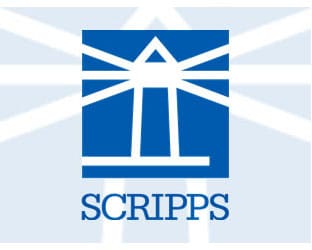 Between their two stations, Granite Broadcasting and Malara Broadcasting control five of six national networks and three of the Big Four – and the United States District Court for the Northern District of Indiana says Nexstar’s antitrust action against it has enough going for it to turn down Granite’s request for dismissal.
Between their two stations, Granite Broadcasting and Malara Broadcasting control five of six national networks and three of the Big Four – and the United States District Court for the Northern District of Indiana says Nexstar’s antitrust action against it has enough going for it to turn down Granite’s request for dismissal.
Nexstar feels particularly injured by the local collection of television stations. Its own WFFT-TV was the local Fox affiliate until the summer of 2011, when it alleges Granite made agreed to pay Fox above-market prices for the affiliation, relegating WFFT-TV to independent status.
Granite’s NBC WISE-TV added Fox on a side channel and also carries MNT programming.
Malara, Granite’s JSA partner under a JSA that the Court believes dates back to 2005, owns WPTA-TV, which carries ABC and CW programming.
CBS, the lone remaining Big Four network, is carried by LIN Television’s WANE-TV.
Nexstsar is no stranger to running SSAs and JSAs, but it has serious problems with this one. Here is how the case is described in a Court document addressing a Granite motion to dismiss Nexstar’s case.
“When Nexstar’s agreement with FOX Broadcasting ended in 2011, Granite paid a supra-competitive price to become the new exclusive FOX affiliate in Fort Wayne (effective August 1, 2011), providing Granite with control over programming and local advertising for five of the six major national network affiliations and three of the ‘Big Four’ networks in the Fort Wayne DMA (ABC, NBC, FOX, CW and MyNetworkTV), substantially increasing Granite’s share of the television local spot advertising market, and significantly limiting or foreclosing competitors’ access to network programming and their ability to compete for advertising revenues.”
The total operation is marketed under the name Indiana’s NewsCenter, and the complaint stated the it’s used “…lucrative compensation package to entice several key Nexstar sales employees who have confidential and proprietary information pertaining to Nextar’s advertising prices.”
Nexstar says INC has also been luring Nexstar’s advertisers, selling in particular Nexstar’s lack of “must-have” programming. Nexstar added that the INC sales pitch has included mention that WFFT may go off the air, be sold or drop its local news programming.
Summing up the complaint, Nexstar said, “Granite’s collusive aggregation of exclusive network affiliations, denigrating commercial speech, and predatory hiring is harming competition generally, and Nexstar specifically. The injuries include lost advertising revenues, higher operating costs (such as the cost of new equipment and licenses to broadcast new programs to replace the network programming from which Nexstar is foreclosed, and the cost of producing competitive news broadcasts), loss of experienced sales staff and their confidential and proprietary information. Local advertisers will have to pay higher prices for advertising, so consumers will have to pay higher prices for what local advertisers sell.”
Nexstar want INC broken up, an end to INC’s attempts to hire its employees and information-gathering about Nexstar’s business practices, and “actual and treble damages, interest, attorney’s fees and costs.”
Granite asked for dismissal, saying “(1) the complaint doesn’t sufficiently allege antitrust injury; (2) Nexstar lacks standing to maintain a private antitrust action; (3) the allegations of denigrating commercial speech and predatory hiring don’t state an actionable antitrust claim; and (4) Nexstar hasn’t sufficiently alleged a conspiracy in Counts 1 and 3.”
In particular, Granite noted that Nexstar’s key antitrust-relevant complaints are higher consumer prices and the loss of the FOX, and states that antitrust laws are not intended to address either. In the end, Granite believes the loss of the FOX affiliation and the suggested that Nexstar’s results would be the same no matter who succeeded it as the FOX affiliate holder.
Nexstar said its allegations are more than that – they involved the loss of ability to compete with the INC group.
The court noted that the deals which created the initial station grouping owned by Granite and Malara appear to date back to 2005, and noted that Malara seems to have acquired WTPA and “effectively transferred operation and control of WTPA-TV back to Granite.”
The Court concluded that Nexstar had presented a strong enough argument to preclude dismissal of the case. The Court also said Nexstar had standing, that its allegation of denigrating commercial speech, while perhaps not a useful standalone argument in the case, sufficed as evidence showing INC’s intent to dominate the local television market.
Addressing the question of conspiracy between Granite and Malara, Granite said such a charge is impossible since the two companies share a “unity of economic interest” and that Malara was not “an independent center of decisionmaking.”
Nexstar countered that their without their agreement to combine sales operations the two companies would be competing with one another.
Given the nature of the Granite/Malara partnership, the Court said describing it as a conspiracy was “plausible.”
As one local observer told RBR-TVBR, the charges that Nexstar has leveled against Granite and Malara and their INC joint venture are serious, and the headline says it all – the Court said the charges have merit and that the case will proceed.
RBR-TVBR observation: The implications of this case reach far beyond the city limits of Fort Wayne.
For starters, the way a court and the FCC would look at this are not the same. As we see it, the FCC’s jurisdiction is mainly over the qualifications of the companies to be a licensee. It generally does not concern itself with programming and sales practices, and as such has allowed JSAs and SSAs to flourish all over the nation – as long as the junior partner in such an arrangement maintains an active management presence at its station(s) and handles all of its own regulatory business.
From time to time the FCC has hinted at adjusting the rules of JSAs and SSAs with an eye toward making them more difficult to put together, and it very well could be a part of the upcoming quadrennial review – but so far, there is no solid word that this is the case.
What is interesting here is that in its effort to duck a conspiracy charge, Granite and Malara said that Malara was not an independent center of decisionmaking. We don’t think the FCC would like that statement very much.
Beyond all that, there is a chance that a general court of law may look at this JSA purely from a business standpoint and strike it down in a way that the FCC would not.
There are a lot of very serious ownership and competition issues simmering on this particular stove. Stay tuned.





